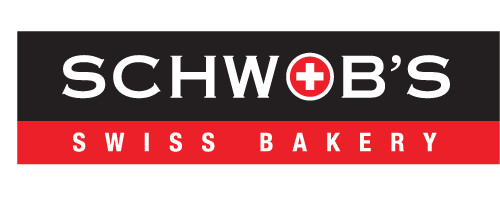Did you know that the earliest proof of flour was about 30,000 years ago in Europe?
Bread has been a staple food for thousands of years, and we aren’t slowing down anytime soon!
Just as the French are famous for their quality wine, the Brits love a good cup of tea, and the Italians wouldn’t be caught dead eating chain-store pizza, the Swiss are known for their impeccable bread making skills.
But first, credit where credit is due: the French and Italians (amongst others) also know how to create bread, but there’s something about that distinctly chewy Swiss bread that makes our mouths water from the thought alone.
Given its location – bordering France, Germany, and Italy (amongst others) – the Swiss are privileged to have a distinct cuisine that combines French, German, and Italian heritage into their day-to-day life.
Swiss Bread
In Switzerland, bread is a core food that makes an appearance in almost every meal. In fact, more than 200 varieties of bread are baked there!
Moreover, depending on what was eaten earlier in the day, a standard Swiss dinner could simply involve bread, cheese, and some dried or cured meats.
Zopf
Zopf is famous Swiss bread that is traditionally eaten on a Sunday. The loaf is woven to look like a braid, and it’s said that its origin comes from the practice of a widow cutting off her braid and burying it with her husband. This tradition dates back to the 15th century. Schwob’s produces a traditional Zopf Roll, so you can enjoy eating your burger in!
Swiss fondue
The Swiss are also famous for the twist on the traditional fondue: they soak cubes of bread in cheese that’s been melted in wine. That’s one alternate way to enjoy wine and cheese night!
Invention of the roller mill
A Swiss named Helfenburger designed the world’s first roller mill (though it was actually built in Hungary). The roller mill replaced stone grinding, making it easier to “separate the wheat germ from the bran”. This invention led to the mass production of flour.
Artisan Swiss bread
You don’t have to be a bread connoisseur to understand the difference between a crusty, handmade, traditional loaf of bread versus that limp white slice you get in the supermarket.
The term ‘artisan’ is used to describe food (in this case, bread) that uses traditional – rather than commercial – methods during production. Artisan food is closely associated with recipes handed down through family generations.
Schwob’s keeps the artisan bread creation dream alive by using recipes and techniques handed down from our founder, Emil Schwob.
Does bread make you bloat?
Good news: artisan bread is actually easier to digest, as a longer fermentation process allows enzymes to begin breaking down the gluten in the flour sooner.
Artisan Swiss bread is, if you pardon the pun, the upper crust of bread.
Richemont Centre of Excellence
Arguably the best bread making school in the world, Richemont was founded in 1945 and is based in the storybook town of Lucerne, located in central Switzerland.
Richemont offers three courses: Advanced Confectionary and Chocolate, Advanced Bakery, and Advanced Pastries and Snacks.
Each course blends theoretical knowledge and hands-on training, all while teaching unique skills akin to artisan bread making. After the successful competition of each course, participants are awarded the ‘Swiss Artisan Excellent’ diploma.
During the Advanced Bakery course, participants learn about:
- Dough temperature
- Fermentation
- Kneading process
- Quality
- Safety
- And much more
Schwob’s Swiss Bakery – Melbourne
The Schwob’s story began over 100 years ago in Switzerland, where young Emil Schwob chose bread making over electrical trades – purely based in the notion that it would be warmer in winter!
From 1915 until now, Schwob’s has been handed down through three generations, and the brand is a household name throughout Australia.
Today, Schwob’s is a Swiss Bakery providing Melbourne and Sydney retail stores with its delicious products. View the range here, and if you’d like to place a wholesale order, fill in this form.


